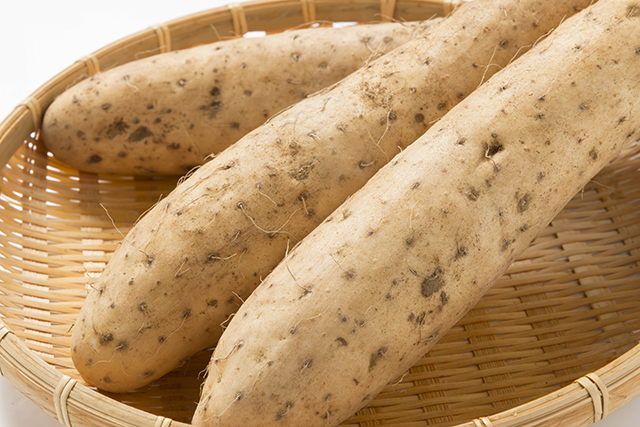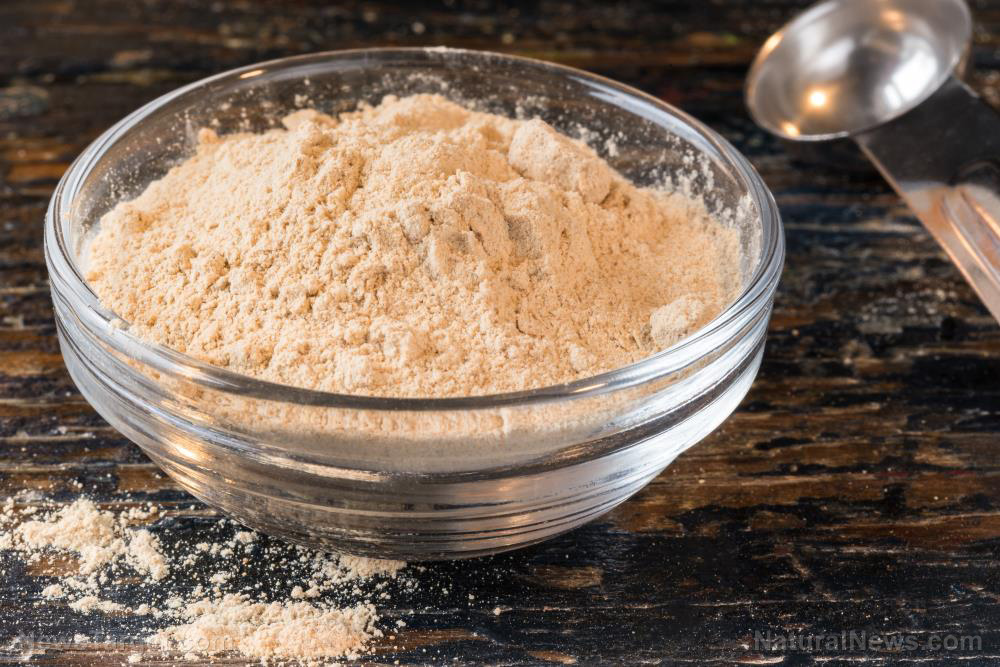
- Yams are rich in dietary fiber, vitamins and minerals, supporting immunity, digestion and overall health.
- Originating in Africa and Asia, yams have been consumed for millennia and remain vital for food security in tropical regions.
- Yams can aid digestion, regulate blood sugar, improve heart health, boost immunity and provide anti-inflammatory and antioxidant benefits.
- Whether boiled, roasted, baked, fried or mashed, yams can be used in a wide variety of dishes.
- Although raw yams are high in oxalate and consumption may trigger allergies in some individuals, yams, especially when cooked, are generally safe to eat.
Nutritional profile and health benefits
Yam is a superfood worthy of being included in a balanced diet as it boasts an impressive array of essential vitamins, minerals and bioactive compounds, including:- Vitamin A (from beta-carotene), which supports healthy vision, immune function and skin health.
- Vitamin C, a potent antioxidant that enhances immunity and collagen production.
- B-complex vitamins (B1, B2, B3, B5, B6, folate), which are crucial for energy metabolism, nerve function and red blood cell formation.
- Vitamin E and K that promote skin health, blood clotting and antioxidant protection.
- Potassium, which supports healthy blood pressure and muscle function.
- Magnesium, which supports relaxation, nerve function and bone health.
- Iron and copper, which are essential for oxygen transport and preventing anemia.
- Manganese and zinc, which aid in enzyme function and immune health.
- Calcium and phosphorus, which strengthen bones and teeth.
- Dietary fiber, which support gut health and blood sugar control. (Related: Protect your gut from inflammation with the Chinese yam.)
- Resistant starch that acts as a prebiotic to feed beneficial gut bacteria.
- Antioxidants (carotenoids, flavonoids) that combat oxidative stress and inflammation.
Potential risks and considerations
While yams are highly nutritious and generally safe for most people, there are a few minor concerns to keep in mind. Some wild yam varieties contain compounds like dioscorin and diosgenin, which can be toxic in large amounts, but commercially cultivated yams are safe to eat. Additionally, conventionally grown yams may contain pesticide residues, so washing and peeling them can help reduce exposure. There is also some evidence that yams may absorb heavy metals like cadmium and lead from contaminated soil, making organic or well-sourced options a preferable choice. Allergic reactions to yams, though rare, can occur in sensitive individuals. People with thyroid conditions should avoid consuming yams raw due to their goitrogenic compounds, though cooking can deactivate these substances. Finally, those prone to oxalate kidney stones may need to moderate their yam intake. Despite these considerations, yams remain a nutrient-dense and beneficial addition to most diets.Culinary uses
Yams are incredibly versatile and can be prepared in countless ways, depending on regional cuisine. Popular yam dishes from around the world:- Pounded yam (iyan) - a Nigerian dish, served with soups like Egusi or Ogbono.
- Amala - a Ghanan dish, made of fermented yam flour eaten with spicy stews.
- Jamaican yam porridge - made from boiled yams with coconut milk, spices and vegetables.
- Yamaimo (mountain yam) - food from Japan consisting of yam grated into a sticky paste; used in noodles and salads.
- Candied yams - from the USA/Caribbean, usually baked with cinnamon, brown sugar and marshmallows.
- Yam chips - a fried or baked snack alternative to potatoes, from West Africa.
- Roasted or baked – A healthier alternative to white potatoes.
- Mashed – Creamy and nutritious as a side dish.
- Added to stews and soups – Thickens and enriches meals naturally.
- Grated in pancakes or fritters – Great for gluten-free options.
More related stories:
Compounds in yam have vasodilating and antioxidant properties.
Drinking yam bean root or guava juice can improve your heart health.
Yam flour can be a great substitute for wheat flour in a variety of food products.
Sources include: Brighteon.AI NaturalNews.com Brighteon.comBlueberries boost brain and heart health in older adults, study finds
By Lance D Johnson // Share
VITAMIN D: the sunshine vitamin’s powerful role in COLON CANCER prevention
By Lance D Johnson // Share
Maca: The Andean miracle root and its health-supporting properties
By Ava Grace // Share
The remarkable heart-friendly properties of avocados
By News Editors // Share
Science reshapes autism care by looking beyond the brain
By Olivia Cook // Share
Trump meets retail CEOs to address tariff concerns as trade tensions rise
By isabelle // Share
The humble Yam: A nutritious root vegetable that can elevate your meals
By lauraharris // Share









